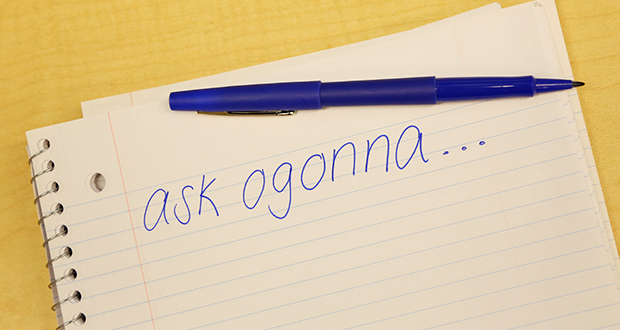Have a problem with love or life in general? Send Ogonna your questions at [email protected] and get them answered here in her column. You can also tweet her at @askogonna or ask her at ask.fm/askogonna
Reader: I’ve had a “friends with benefits” situation for a while now, but I feel that my friend has been giving me an “I want to be more than friends” vibe. I don’t want to be in a relationship. How do I approach this situation?
Ogonna: Talk about it. Anytime there is a discrepancy with the way a relationship — or in this case, a nonrelationship — is forming, it is best to address the situation upfront.
Now, let’s first navigate the concept of friends with benefits. While it seems like a win-win situation in the heat of the moment, I personally believe the trajectory of the friends with benefits journey can never really end well, and I am the first to advise against it.
Sure, it’s easy to tell yourself that you can separate your emotions from physical actions, but reality will usually testify that the opposite might occur. Although the “friends-with-benefits-turned-committed-relationship” story sounds cliché, I honestly think that it’s common for some people to use hooking up as a way to become the romantic partner of one of their friends.
I wouldn’t jump to the conclusion that this is the exact reason why your friend is starting to make moves, but I think you should start to point out these changes. Look at how this nonrelationship began. Was it a spoken agreement that both parties did not want a relationship to result from these actions? Were there any emotions or previous romantic feelings before this began? Even if these feelings weren’t explicitly known, there might have been lingering feelings that were exposed with the physical nature of the relationship. Friends are friends because they connect with each other on some type of emotional level, so it’s very easy for this line to be crossed with the addition of intimate actions.
If you feel like the dynamics of this friends-with-benefits relationship have changed and that one side now feels differently, it is very important to address both. On one level, both parties must feel safe and secure in any type of emotional or physical action, even if you are not in a committed relationship. You also don’t want to move forward with anything that might negatively impact that friendship, especially if you know that your friend now has romantic feelings.
No matter what your friend says, you must react with patience and respect that opinion. Take it from Selena Gomez on her on-again, off-again relationship with Justin Bieber. “The heart wants what it wants.” If your friend wants to be in a relationship, don’t get upset or act weird. But I don’t advise continuing to be involved physically with your friend if you don’t have the same interests in committing to a relationship. You don’t want to lead your friend on, so it’s better to be upfront and discuss what it would look like to end that interaction. It’s obvious that the relationship between you two will most likely change; you might not go back to being platonic friends immediately, but that’s not to say it can’t and won’t return back to normal in the future.
As I said before and will say again and again, before you engage in any type of physical interaction with a friend or partner, make sure that both parties have the same expectations. If one person is hoping for something that won’t happen, it’s better to stop before anything even starts at all.

